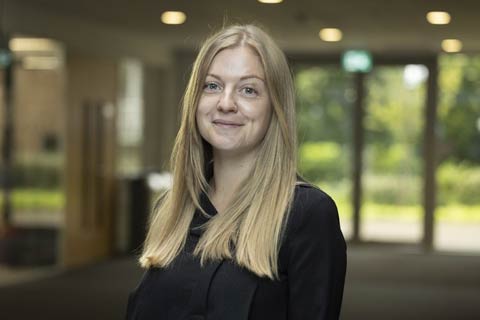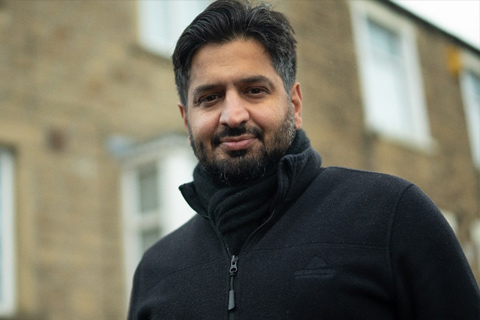Events
Developmental Coordination Disorder (DCD) UK Conference 2025
Friday 11 to Saturday 12 July 2025
/prod01/yorksjacuk/media/content-assets/safe-images/1600-x-1000/Campus-Wide_01.jpg)
The DCD-UK Conference 2025 is co-hosted by the School of Science, Technology and Health and the Rehabilitation and Health Promotion Group at York St John University.
.png)
The DCD-UK Conference 2025 is financially supported by The Waterloo Foundation.
Keynote speakers
We are delighted to announce 2 keynote speakers for the event. Use the drop-down to explore our speakers' research and talks.

Senior Lecturer in Psychology
Department of Psychology, Edge Hill University
Emma is a Senior Lecturer in the Department of Psychology at Edge Hill University where she coordinates the Education and Learning research group and teaches on degree programmes with a focus on educational psychology. Her research seeks to understand the nature of literacy difficulties, particularly struggles with writing, in children and young people with special educational needs (SEN). She has a keen interest in exploring how to help children and young people thrive, considering school practices and SEN provision, and the role of technology. Her work has been funded by the Nuffield Foundation, Horizon 2020, UNESCO and the Heather van der Lely Foundation, among others. Emma is passionate about bridging the research-to-practice gap and has developed a number of knowledge-exchange programmes and CPD activities for teachers.
Talk title: Capturing current practice and pupil voice: the pursuit of supporting children and young people who struggle with writing.
Learning to write and being able to demonstrate knowledge through writing can be challenging for many children and young people, especially those with motor difficulties or specific learning difficulties. The pressure to 'keep up' in the classroom and for exam purposes is great for those that struggle to process information and respond quickly (i.e. when producing written responses under time constraints). As national data reports an increase in special educational needs, as well as an upward trend of students needing support for exams, it is important to capture current practice and analyse approaches to support such individuals.
In this talk, I will present data on the perceived study needs of students with developmental coordination disorder (DCD) in Higher Education. Their views on inclusive practices and use of accommodations to support their writing will be explored. I will then extend this discussion to consider students with Specific Learning Difficulties (SpLD) more generally and in earlier stages of education. Reference will be made to my recent work on the efficacy of exam accommodations (access arrangements), which also incorporates pupil voice. This strand of work will be of interest to practitioners and families involved in the support offered to children and young people struggling with handwriting, such as those with DCD. Finally, practical implications will be drawn from the findings; encouraging reflections on how to ensure that support for exams and classroom learning is targeted effectively.

Principal Research Fellow and Director of the Centre for Co-production and Peer Research
Bradford Institute for Health Research (NHS)
Shahid led on the development of the ActEarly co-production strategy which has been widely implemented across Bradford and Tower Hamlets. He is also Visiting Research Fellow with the University of Bradford and Vice Chair for Bradford for Better. In 2015 Shahid was the winner of Bradford's Community Star Award for outstanding services to the voluntary sector and in 2021 he won the Chief Scientific Officer’s Excellence in Healthcare Science Research and Innovation Award. He has authored over 25 publications in a number of journals on the topics of inclusion and engagement. Shahid was recently awarded a Fellowship by the Royal Society of Arts (FRSA).
Talk title: Co-production in practice: Nothing about us without us.
Co-production is not new; it has been around since the 1970s, but only in recent decades have we seen it propel in prominence. In practice, co-production is an answer to the question of how to mobilise civil society by using the public services infrastructure to deliver efficient services that are reflective of people's needs. But to move co-production from marginal experimentation towards a standardised way of getting things done requires effort and direction.
In this session we look at what makes co-production different and distinct from other approaches and how it has made a place for itself in policy, practice and research circles. The key ingredients of co-production will be discussed and we will outline the co-production approaches we used to co-produce our co-production strategy.
Conference registration and programme
Registration for the conference in now open.
Register for DCD UK Conference
Registration fees are as follows:
- Researcher / clinician in person (2 days) - £120
- Researcher / clinician in person (1 day) - £60
- Researcher / clinician online (2 days) - £90
- Researcher / clinician online (1 day) - £45
- People with lived experience / students in person (2 days) - £80
- People with lived experience / students in person (1 day) - £40
- People with lived experience / students online (2 days) - £50
- People with lived experience / students online (1 day) - £25
Download a general overview of the conference schedule below.
DCD UK 2025 Conference Schedule General Overview (docx, 0.2 MB)
Download the full conference schedule below.
Abstract submission
We welcome abstract submissions for both oral and poster presentations. Abstracts should be a maximum of 250 words excluding title, names and affiliations and should be completed in MS Word format. Please indicate if you have a preference for a poster or oral presentation when you make your submission.
The deadline for abstract submission is Monday 31 March 2025.
Submit your abstract before the deadline by email to DCD-UK2025@yorksj.ac.uk. Please ensure that you include the words 'DCD-UK Abstract Submission' within the subject line.
Presenters will be notified whether their abstract has been accepted in April 2025.
Location, travel and accommodation
The conference will take place in the Creative Centre at York St John University. The address and postcode for the Creative Centre is:
York St John University Creative Centre
Lord Mayor's Walk
York, YO31 7EX
United Kingdom
The University is easily accessible by multiple transport options. There is no parking on site but it is available close to the University. If you are travelling by train, the University is around 15 minutes' walk from the railway station. Find full details of travel options on our Find us page.
There are numerous accommodation options in central York within walking distance of the conference venue. The University recommends several hotels at which discounted rates can be obtained:
- Malmaison York (code: YKST900)
- DoubleTree Hilton York (please book early due to limited numbers)
Other recommended hotels include Moxy York, Premier Inn Layerthorpe, and The Grand.
Please note that the John Smith's Cup at York Racecourse takes place on 11 and 12 of July and we recommend booking your accommodation as soon as possible.
Conference venue
Click the images to view full size
Drag/swipe to view all the images
/prod01/yorksjacuk/media/content-assets/safe-images/1280-x-768/Campus-grounds---Lord-Mayors-Walk-7.jpg)
/prod01/yorksjacuk/media/content-assets/safe-images/1280-x-768/Co-Create-Festival-52.jpg)
/prod01/yorksjacuk/media/content-assets/safe-images/1280-x-768/Campus-Buildings-35.jpg)
/prod01/yorksjacuk/media/content-assets/safe-images/1280-x-768/De-Grey-reception-plants-11.jpg)
/prod01/yorksjacuk/media/content-assets/safe-images/1280-x-768/Co-Create-Festival-65-(1).jpg)
/prod01/yorksjacuk/media/content-assets/safe-images/1280-x-768/york-students-21.jpg)
/prod01/yorksjacuk/media/content-assets/safe-images/1280-x-768/York-guide-139.jpg)
/prod01/yorksjacuk/media/content-assets/safe-images/1280-x-768/York-Town-City-Centre--10.jpg)
